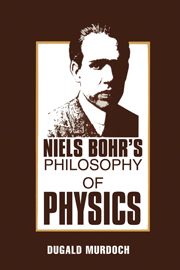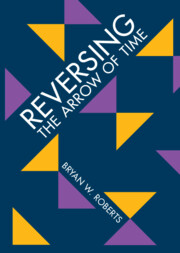The Philosophy and Practice of Science
This book is a novel synthesis of the philosophy and practice of science, covering its diverse theoretical, metaphysical, logical, philosophical, and practical elements. The process of science is generally taught in its empirical form: what science is, how it works, what it has achieved, and what it might achieve in the future. What is often absent is how to think deeply about science and how to apply its lessons in the pursuit of truth, in other words, knowing how to know. In this volume, David Teplow presents illustrative examples of science practice, history and philosophy of science, and sociological aspects of the scientific community, to address commonalities among these disciplines. In doing so, he challenges cherished beliefs and suggests to students, philosophers, and practicing scientists new, epistemically superior, ways of thinking about and doing science.
- Aims to remedy the fact that most students, and even some professors, have only a superficial appreciation of the historical and philosophical principles upon which their work is based
- Provides a detailed historical account of the development of the “scientific method” from the philosophy of the Ancient Greeks to the present day
- Discusses how one should think about and the 'hows' and 'whys' of doing science, for the mutual benefit of both scientists and philosophers
- Discusses and exemplifies the epistemology and sociology of science, for readers to appreciate the huge impact non-scientific factors have in all aspects of science practice
Reviews & endorsements
'[This is] a rare and remarkable kind of book - a full-length treatment of the philosophy of science written by a highly respected scientist. The outcome is a veritable intellectual feast, including a sweep of the whole history of scientific methodology, from ancient Egypt to today's data-driven research … this book makes something of a philosophical manual for working scientists, especially those who are in the early stages of their careers. I hope that generations of students and researchers entering their scientific careers will discover this book and benefit from its abundant wisdom.' Hasok Chang, University of Cambridge (from his Foreword)
'What is science? What does it mean to 'do' science? How can science be done thoughtfully? These broad, fundamental, and challenging questions are taken on by David B. Teplow. This book also provides practical real-world advice to young scientists on such issues as formulating a worthwhile hypothesis or question; the importance of experimental approach, design, rigor, and reproducibility; avoiding bias; … I found Teplow's book to be educational, enlightening, thought-provoking, and engaging. Reading it reminded me to stop and think more deeply about the meaning and value of my own work, why I continue to 'do' science, and what I hope to accomplish.' Michael S. Wolfe, University of Kansas (from his Foreword)
'What makes [the book] monumental is the vast amount of detailed information that Teplow has managed to pack into those four hundred pages … He dissects with a very sharp scalpel every conceivable aspect of actually doing science from choosing a project to the truth, or lack of it, of the theories produced in five sections and twenty-nine subsections. Bringing varying and contrasting views on every topic handled, a master class in in-depth analysis… I actually think this is a very good book. … [it] has lots of valuable information for those who wish to understand the process of science, all of which is assiduously researched and presented …' Thony Christie, The Renaissance Mathematicus
'Highly recommended.' R. E. Buntrock, Choice
'… a comprehensive, informative, and sympathetic introduction to the view from both sides and as such is to be lauded as an exceptional and welcome act of diplomacy … Overall the book is a dense, encyclopaedic tour de force, which cannot be taken or read lightly. I assume it is aimed primarily at those starting out on a research career, although as a refresher for the longer-in-tooth it will contain some surprises and even more sobering reminders. For anyone willing to invest the time and effort, it is hard to see anything but significant reward resulting.' Dave Pike, The Observatory
Product details
August 2023Hardback
9781107044302
430 pages
250 × 176 × 28 mm
0.87kg
Available
Table of Contents
- Forewords Michael S. Wolfe and Hasok Chang
- Preface
- 1. Introduction
- 2. Defining science
- 3. Learning science
- 4 Development of the scientific method: from papyrus to petaflops
- 5. Science in practice
- 6 Science as a social endeavor
- 7. Epilogue
- Appendices
- Index.





